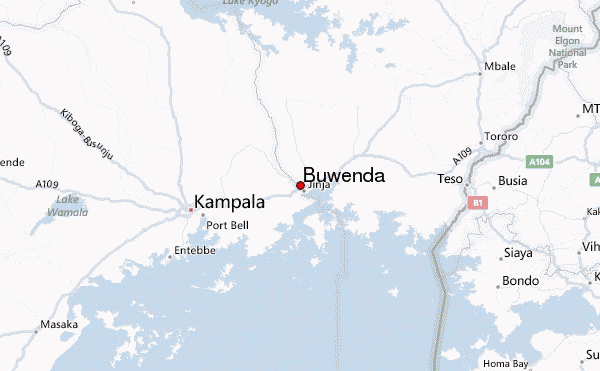Why agriculture?
- Uganda is a landlocked and extremely fertile country. Approx 86% of the country’s population live in rural areas and rely solely on agriculture.
- More than half of the population live in poverty without reliable access to food.
- Despite Uganda’s rich soil and favorable weather, there are several barriers preventing poor farmers making the most of the country’s fast growing economy.
Why women specifically?
- Women play a critical role in farming and rural economic development.
- Investing in women impacts so many more people than just the families involved.
- More than 60% of women work in agriculture but with limited land and resources many are unable to feed their families.
- The UN’s Food and Agriculture Organization have estimated that if women were given the same access to productive resources as men, they could increase the yield on their farms by 20-30%
What will the long lasting impact have on the local community?
- Improve health among locals, linking agriculture, education and nutrition
- Build skills, empower women, strengthen community and enhance food security
- Give locals the ability to work for an income and support their families
- Build a more prosperous life that allows women to take charge of their futures
Some general information about Uganda
Uganda is in East Africa and neighbors Tanzania, Kenya, Ethiopia, Rwanda and Democratic Republic of Congo (DRC). Kampala is the capital city of Uganda and it is on the shores of Lake Victoria.
The main airport is Entebbe International Airport (EBB). It is located 40km southwest of the capital Kampala and 95km from Jinja. The project is in Buwenda Village, close to Bujagali and approx 15km outside of Jinja
The official language of Uganda is English. Other languages widely spoken are Luganda and Swahili. The local language in Buwenda and surrounding areas is called Lusoga. There are over 30 tribes in Uganda, each with its own local language.
Do I need a visa to enter Uganda?
Yes. Tourist visas are valid for 3 months and can be purchased at the airport upon arrival. You will need to have $100US cash.
What is the Uganda currency?
The currency in Uganda is Uganda Shillings (UGX). 1000 UGX is approximately .40c CAD. There is a bank machine at the airport when you arrive to take cash out, as it can sometimes be difficult finding shillings before departure.
How is the climate in Uganda?
Uganda has a tropical climate. The temperature in Uganda usually range from 21 to 25°C year round. It is cool in some parts of the country due to the country’s high altitude. The hottest months are January to March and the temperature can reach 29°C during that period.
The rainy season starts from April to May and October to December. The driest times are June to August and January to March.
What vaccinations/immunizations are required?
We suggest you get vaccinated against the following:
- Yellow fever
- Hepatitis A & B
- Typhoid
- Rabies
- Tuberculosis
Malaria is common in Uganda. You should visit your doctor 4-6 weeks before travelling for any necessary vaccinations and a prescription for an anti-malarial medication.
How much do things cost?
Everything is really cheap when bought locally. A bottle of coke is 40c, a beer is $1. Avocados and pineapples are less than 20c each! A local meal costs around $1 in the village.
How is Ugandan food?
Ugandan food is varied. The breakfast usually consist of tea/coffee/cocoa/oats/porridge, bread and eggs. The main dish is Matooke (made from steamed green plantains).
Other dishes include cassava, sweet potatoes, millet bread, rice or yams served with beef or chicken stew or sometimes soup.
There is options for western food near the River Nile, where a tourism spot is located, a short walk from the project. Here you can find western food (for around $5 a dish).
How much spending money will I need?
The average volunteer spends approximately $700 over a 6 week period. You could easily spend much less or much more, depending on your lifestyle and on how much you see and do. If you decide to take a tour, or see the gorillas your budget will be much higher for this.
What’s the accommodation like?
We offer a wide range of accommodation within Bujagali Village, approximately a 10min walk from the project site. These largely vary in both price and comfort.
A basic room within a local home (with shared toilet/shower) including 2 huge meals a day costs around $5CAD per night. On the River Nile there is luxury en suite accommodation for approximately $50CAD per night. There is also camping available for $8CAD (tent not included)
I personally stay at the in between option, around $12CAD per night a very basic room with shower/toilet in the room.
Many of the basic accommodations offer cheaper rates for extended stays.
Is there wifi?
At the River Nile tourist locations there is wifi. Jinja town is approximately 10km away and this offers many places with wifi.
How do I get around?
Boda Bodas (motorcycles) are the main form of transportation. From Bujagali to town is approximately $1.50CAD each way. There are also local buses that are much cheaper (.40C into town) or taxis that cost around $8 one way.
What should I pack?
This varies on how long you are staying and whether you plan to take a safari or go gorilla treking. It is recommended to bring light, easy to dry clothing, a few short or skirts, some t-shirts or tank tops, good sandals and walking shoes. Long pants and a fleece for cooler evenings. It is also handy to have a good water proof jacket. Headlamps and extra batteries come in handy as the electricity sometimes goes out.






